CMS DEVELOPMENT SERVICES
Content Management System (CMS) Development Services
involve designing, developing, and maintaining platforms that allow businesses to manage digital content efficiently. CMS solutions are critical for businesses looking to update, organize, and publish content without requiring deep technical expertise. A CMS is software that enables users to create, edit, organize, and publish digital content, often for websites. It separates the content from the backend code, making content management simple for non-technical users.


Key Features of CMS Development
User-Friendly Interface
- Intuitive dashboards for content editing and management.
- Drag-and-drop functionality for layout adjustments.
- Customizable Templates
- Pre-designed themes with customization options.
- Fully bespoke designs to align with branding.
Content Editing Tools
- WYSIWYG (What You See Is What You Get) editors.
- Rich media support for images, videos, and more.
- SEO Optimization Tools
- Metadata editing, sitemap generation, and URL management.
- Plugins for SEO performance tracking.
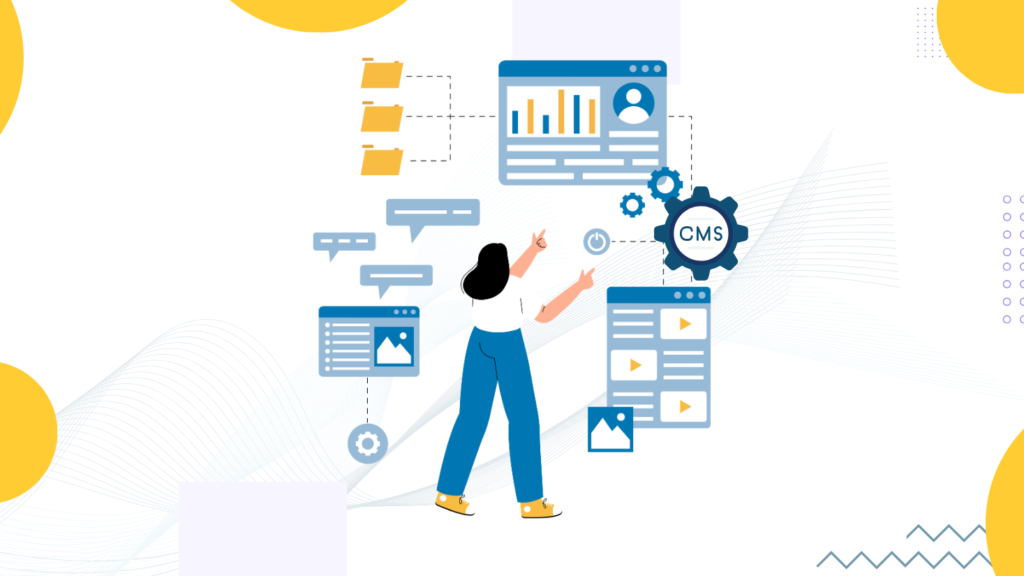
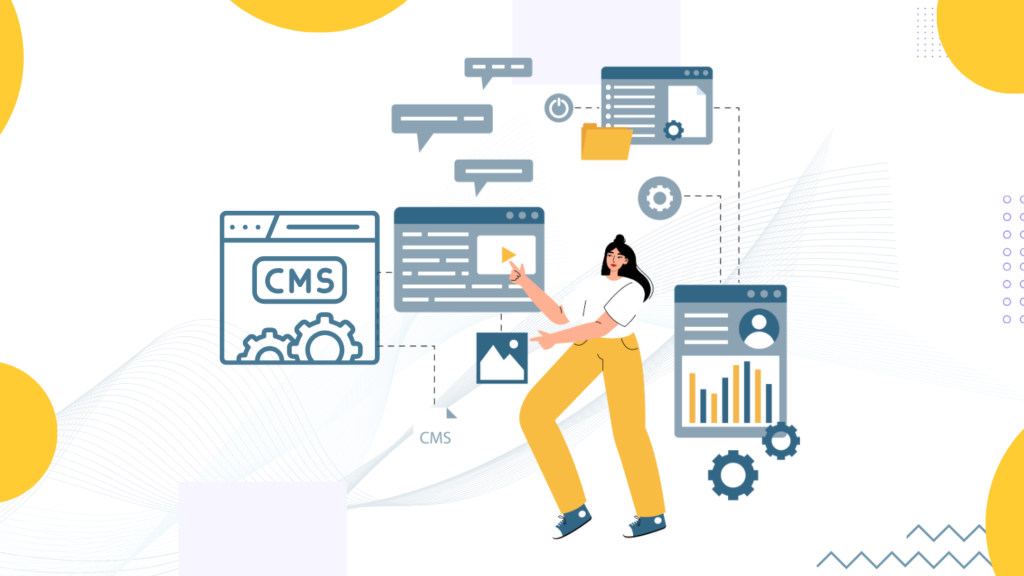
Scalability
- Ability to handle growing content libraries and traffic
- Modular designs to add new features as needed.
- Multi-User Management
- Role-based permissions for administrators, editors, and contributors.
- Collaboration tools for workflow efficiency.
Integration Capabilities
- APIs for third-party tools like CRM, eCommerce platforms, or marketing tools.
- Support for analytics, payment gateways, and social media integration.
- Security
- Regular updates and patches.
- Features like two-factor authentication and encrypted storage.


Types of CMS Development Services
Custom CMS Development
- Ability to handle growing content libraries and traffic
- Modular designs to add new features as needed.
- Multi-User Management
- Role-based permissions for administrators, editors, and contributors.
- Collaboration tools for workflow efficiency.
Types of CMS Development Services
Custom CMS Development
- Tailored solutions to meet specific business requirements.
- Ideal for unique workflows, integrations, or high-security needs.
CMS Platform Customization
- Extending the functionality of existing platforms like WordPress, Joomla, or Drupal.
- Custom plugin and module development.
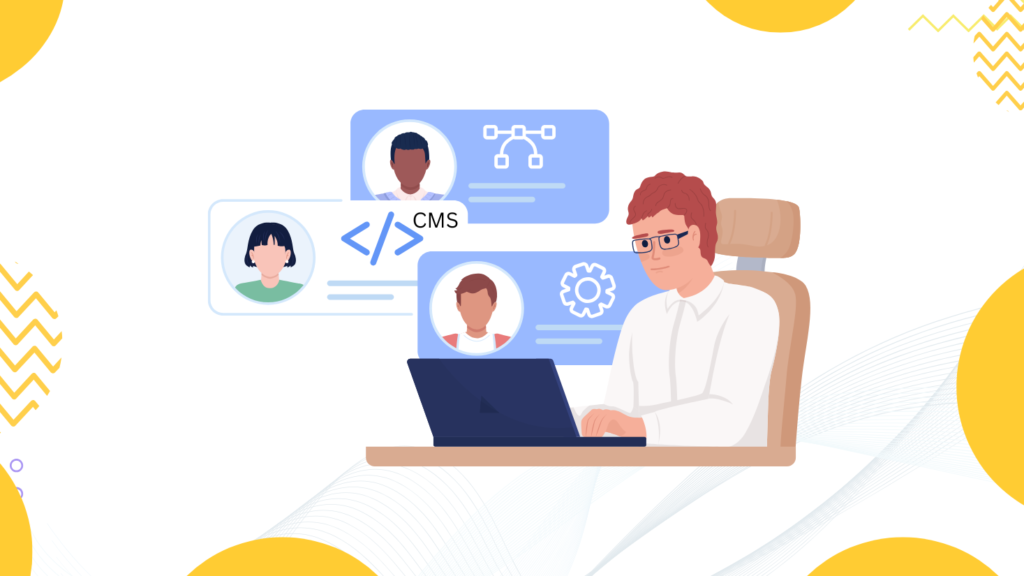
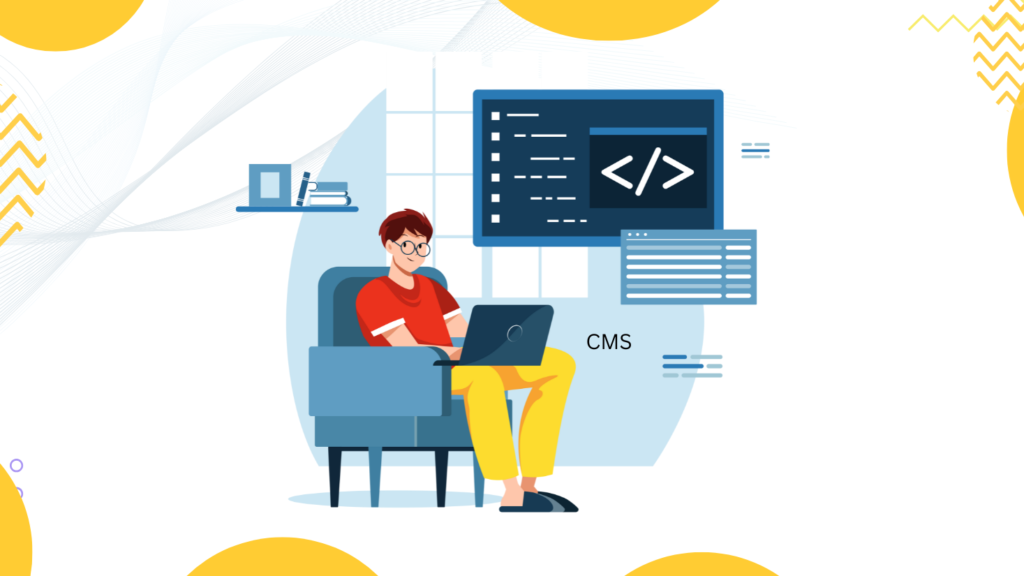
Enterprise CMS Solutions
- Advanced features like multilingual support, scalability, and robust security.
- Platforms: Adobe Experience Manager, Sitecore.
eCommerce CMS Development
- Focused on managing product catalogs, orders, and payments.
- Platforms: Magento, Shopify, WooCommerce.
Headless CMS Development
- Separates backend content management from the frontend delivery.
- Flexible content delivery across websites, apps, and IoT devices.
Popular CMS Platforms
- WordPress (Most Popular).
- Open-source, extensive plugins and themes.
- Ideal for blogs, portfolios, and small to medium businesses.
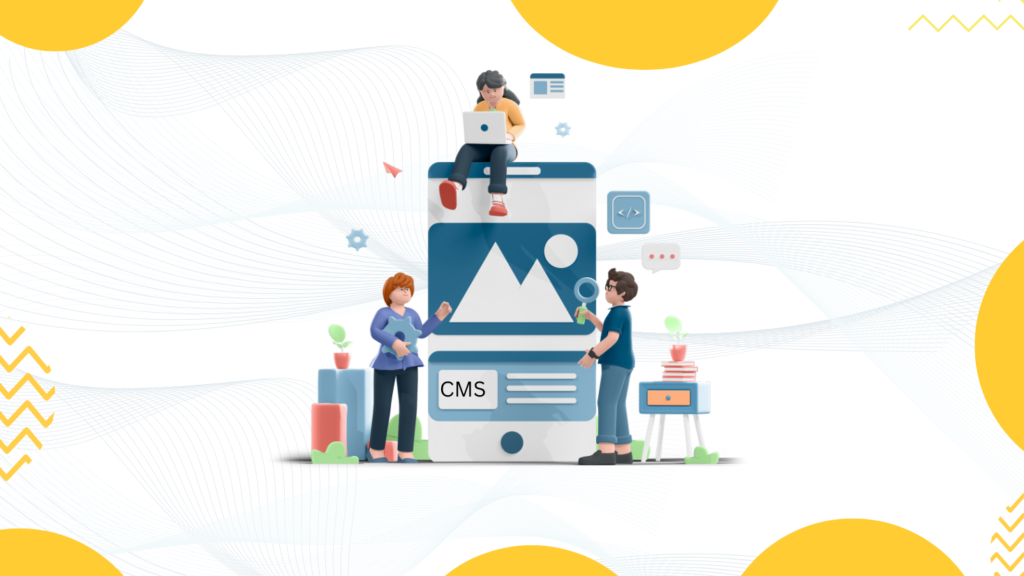
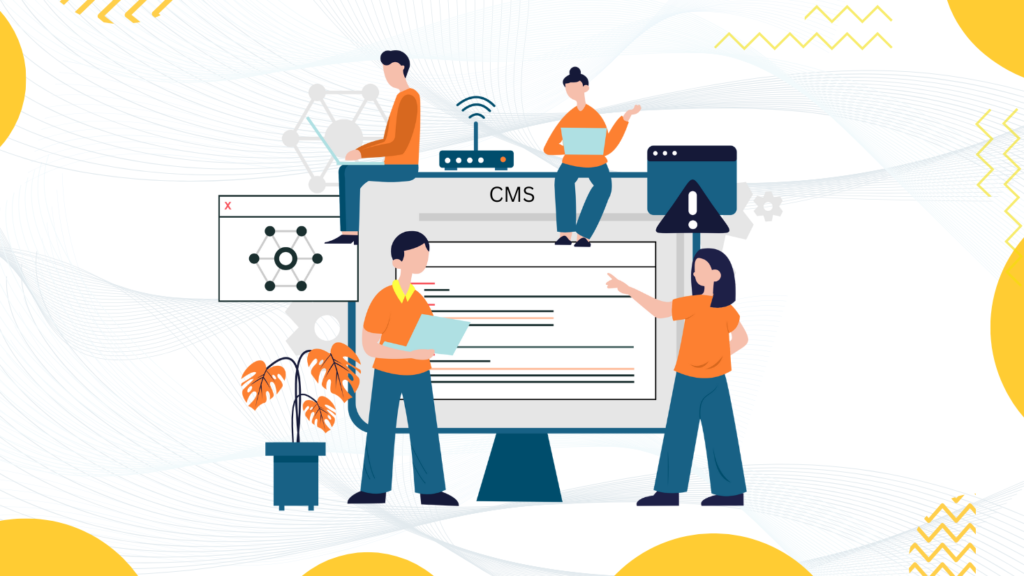
Enterprise CMS Solutions
- Advanced features like multilingual support, scalability, and robust security.
- Platforms: Adobe Experience Manager, Sitecore.
eCommerce CMS Development
- Focused on managing product catalogs, orders, and payments.
- Platforms: Magento, Shopify, WooCommerce.
Headless CMS Development
- Separates backend content management from the frontend delivery.
- Flexible content delivery across websites, apps, and IoT devices.
Popular CMS Platforms
- WordPress (Most Popular).
- Open-source, extensive plugins and themes.
- Ideal for blogs, portfolios, and small to medium businesses.


Drupal
- Highly customizable and secure.
- Suitable for government and large-scale projects.
Joomla
- Balances simplicity and power.
- Ideal for community sites and small businesses.
Shopify
- Specialized in eCommerce.
- Supports inventory management and payment integrations.
Magento (Adobe Commerce)
- Feature-rich eCommerce CMS.
- Perfect for large-scale online stores.
Wix and Squarespace
- Easy-to-use platforms for small businesses and personal websites.
Strapi or Contentful (Headless CMS)
- API-first platforms for delivering content across multiple devices.
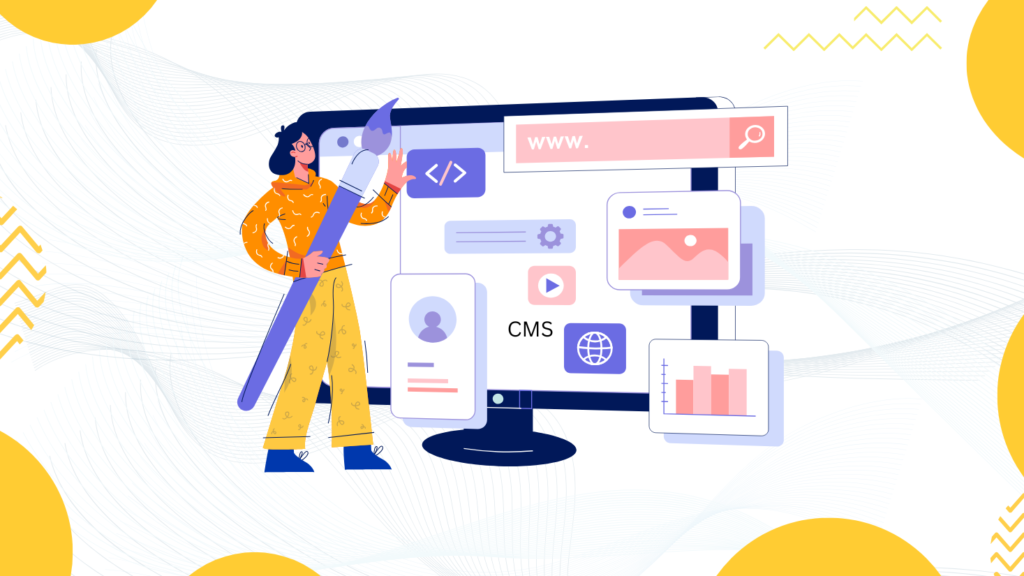

Steps in CMS Development
- Requirement Analysis
- Define the project’s goals, target audience, and required features.
Platform Selection
- Choose between custom-built CMS or modifying an existing platform.
Shopify
- Specialized in eCommerce.
- Supports inventory management and payment integrations.
Magento (Adobe Commerce)
- Feature-rich eCommerce CMS.
- Perfect for large-scale online stores.
Wix and Squarespace
- Easy-to-use platforms for small businesses and personal websites.
Strapi or Contentful (Headless CMS)
- API-first platforms for delivering content across multiple devices.


Design and Development
- Create UI/UX designs.
- Develop templates, plugins, and integrations
Testing and Deployment
- Ensure compatibility, responsiveness, and bug-free performance.
- Deploy the CMS and train users.
Maintenance and Updates
- Regular updates to plugins and security patches.
- Technical support for scaling or adding new features.
Benefits of CMS Development Services
- Ease of Use : Non-technical users can manage content effortlessly.
- Cost-Effectiveness : Reduces reliance on developers for content updates
- SEO-Friendly : Built-in tools to improve search rankings.
- Flexibility : Support for different types of content (text, video, audio).
- Time-Saving : Streamlines workflows with scheduling and automation.


Industries Benefiting from CMS Development
- Media and Publishing : Centralized content management and multi-channel distribution
- Retail and E-commerce : Easy management of product catalogs
- Education : Creation of online courses and educational portals
- Healthcare : Managing patient education materials and medical information.
